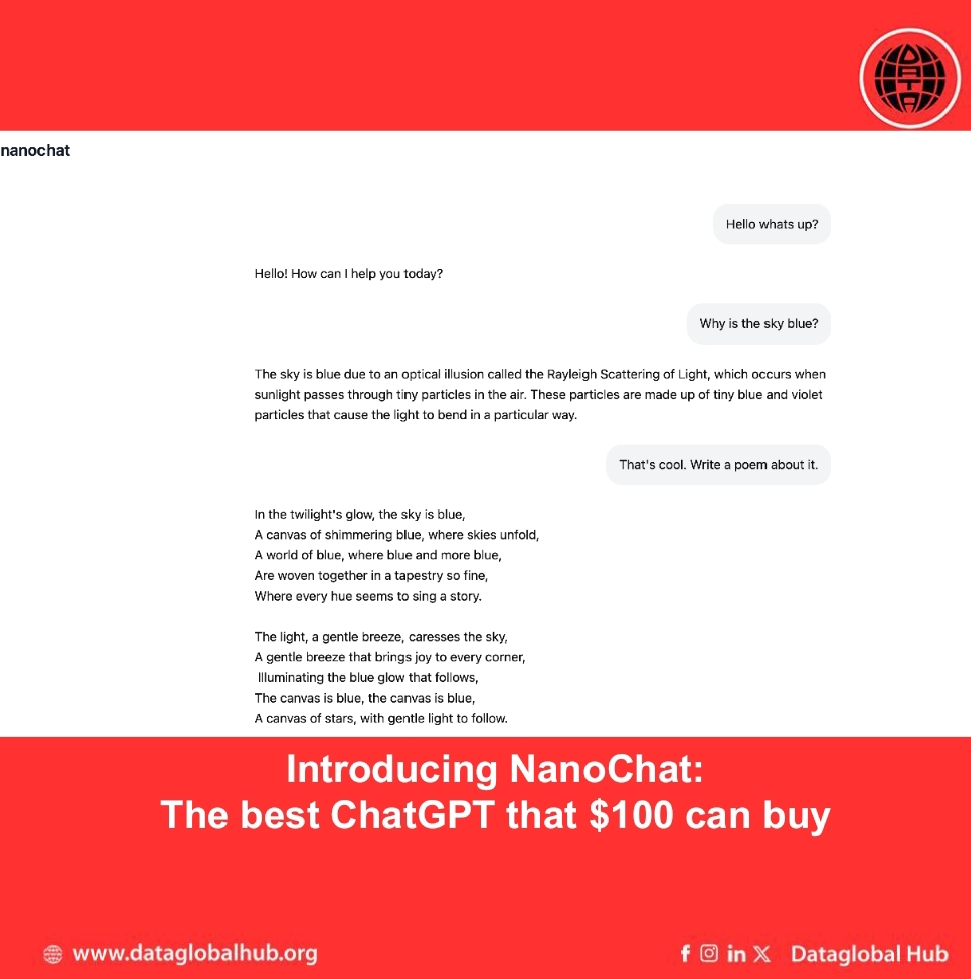
NanoChat: A Clear and Accessible Blueprint for Building ChatGPT-Style Models
Translate this article
.A new open-source project, NanoChat, offers a refreshingly direct approach to understanding how large language models (LLMs) like ChatGPT are built. Developed by karpathy Andrej, the project is a complete, self-contained implementation that demystifies the process of creating a conversational AI.
Unlike complex frameworks, NanoChat consolidates the entire pipeline—from data processing and model training to a functional web interface—into a single, coherent codebase. This minimalistic design prioritizes readability and hands-on learning, making it a valuable resource for developers and enthusiasts seeking a practical understanding of the technology.
Demonstrating Capability with a Modest Budget
The project highlights what is achievable with limited resources. Its entry-level configuration is designed to train a model for approximately $100 in compute costs on a standard cloud GPU node, completing in about four hours.
The process is initiated with a single script that handles training and evaluation. Upon completion, users can interact with their model through a simple web interface, similar to ChatGPT. It's important to manage expectations; a model trained at this scale has fundamental limitations and serves primarily as an educational demonstration of the core principles.
Designed for Experimentation and Scaling
For those looking to build more capable models, the project provides clear guidance for scaling. The documentation outlines the parameter adjustments needed to train a larger model, for instance, one that approaches the performance of GPT-2 for around $300. This involves managing data volume and adjusting memory settings, offering a clear path for more advanced experimentation.
A Tool for Practical Learning
NanoChat's value lies in its transparency. It provides a working, tangible example that professionals can study, run, and modify. By packaging the entire lifecycle of an LLM into a clean codebase, it serves as both a learning tool and a solid foundation for further innovation in the field.
The NanoChat repository is available on GitHub for developers to explore.
About the Author

Ryan Chen
Ryan Chan is an AI correspondent from Chain.
Recent Articles
Subscribe to Newsletter
Enter your email address to register to our newsletter subscription!